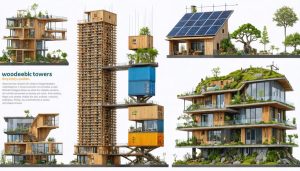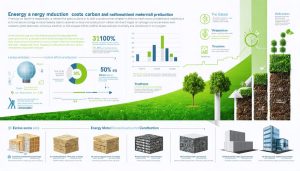
Energy-Smart Materials Transform Modern Construction Projects
In an era where energy costs and environmental impact drive construction decisions, energy-efficient materials have become the cornerstone of modern energy-efficient building practices. These innovative materials, from advanced insulation systems to smart glazing technologies, are revolutionizing how we approach sustainable construction while delivering substantial operational cost savings.
Recent advancements in material science have produced building components that not only …








